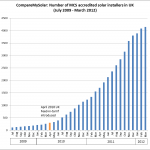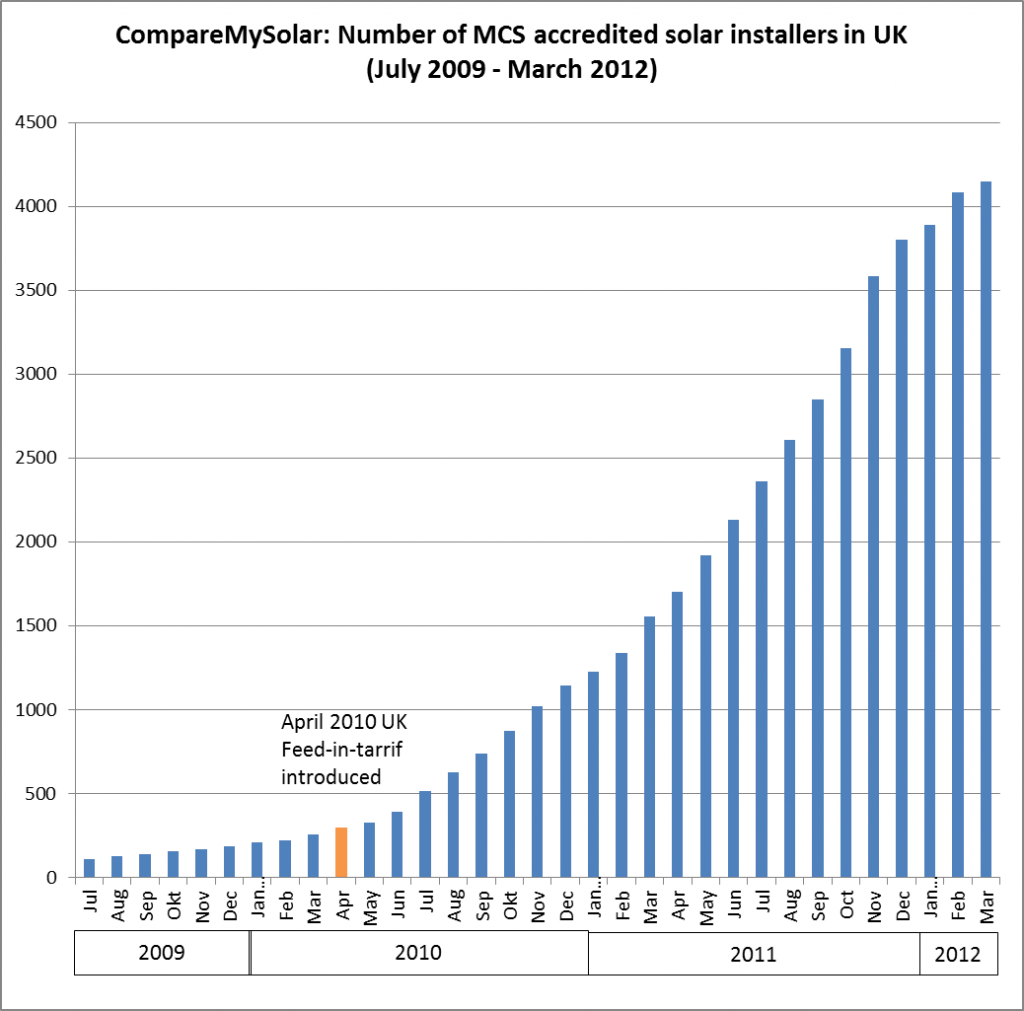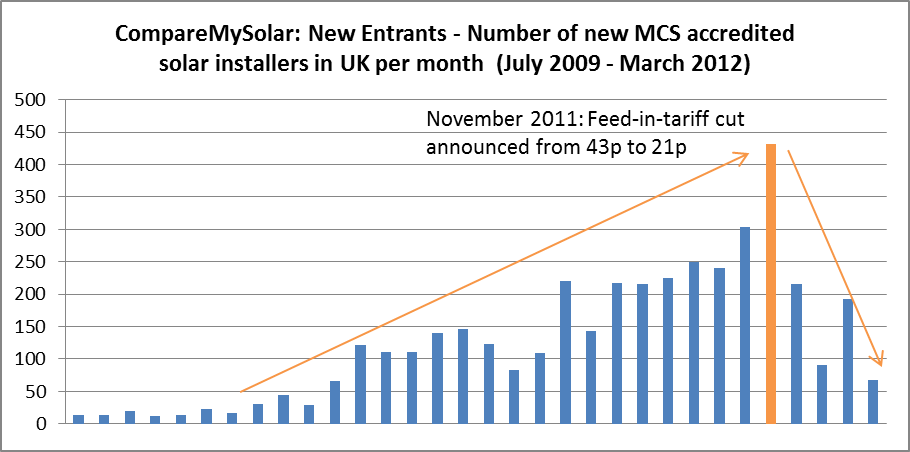 The number of solar installers in the UK has grown dramatically since the introduction of the Feed-in-Tariff in April 2010. According to the MCS website (the UK accreditation required to be a solar installer) there were more than 4.150 installers at the end of March 2012. This compares to just over 200 accredited solar installers early 2010, when the Feed-in-Tariff was due to get started, which is a twenty-fold increase! However, going forward this may be going down..
The number of solar installers in the UK has grown dramatically since the introduction of the Feed-in-Tariff in April 2010. According to the MCS website (the UK accreditation required to be a solar installer) there were more than 4.150 installers at the end of March 2012. This compares to just over 200 accredited solar installers early 2010, when the Feed-in-Tariff was due to get started, which is a twenty-fold increase! However, going forward this may be going down..
The number of new entrants, newly accredited solar installers that were added every month, was ever increasing on the 43p Feed-in-Tariff. But since the cuts were announced in November 2011 in has been dropping dramatically. While on average since July 2010 there have been more than 180 companies entering the solar market every month, last month (March 2012), there were not even 70 new entrants. The following graph shows the number of newly accredited solar installer per month. Since August 2009. It clearly peaks just after the subsidy cut towards 21p was initially announced (November 2011), and growth of new solar installers has been declining since.
Combining these numbers with the number of installations and anecdotal evidence leads us to believe the number of solar panel installers in the UK may have peaked, and could start declining going forward. Extrapolating the number of solar panel installations as counted by DECC till the 25th of March, there will be about 8.000 – 10.000 installations completed in March. With over 4.000 solar installers, that is only slightly more than two installations per company – which is not enough to survive on for most firms.
Furthermore there is anecdotal evidence of a decline, since CompareMySolar has spoken to multiple solar installers who are considering to exit the market. This is further supported by stories from solar distributors, with one claiming ‘Last Monday alone, three installers let know they will not be extending their MCS accreditation.’ Unless the market sees a significant uptake in the consumer demand, many more UK solar installers could decide to exit the market.
Consumers need to be critical of the expected longevity of the solar installer during the site surveys. A solar company that has been around for years (preferably since before the FiTs were introduced) is a good sign. A good brand and reputation are another good sign. And insurance backed warranty is another factor that provides ‘peace of mind’ when buying solar panels. Solar panels from a reputable installer may cost more than the best-priced one, but this is certainly a price worth considering.

